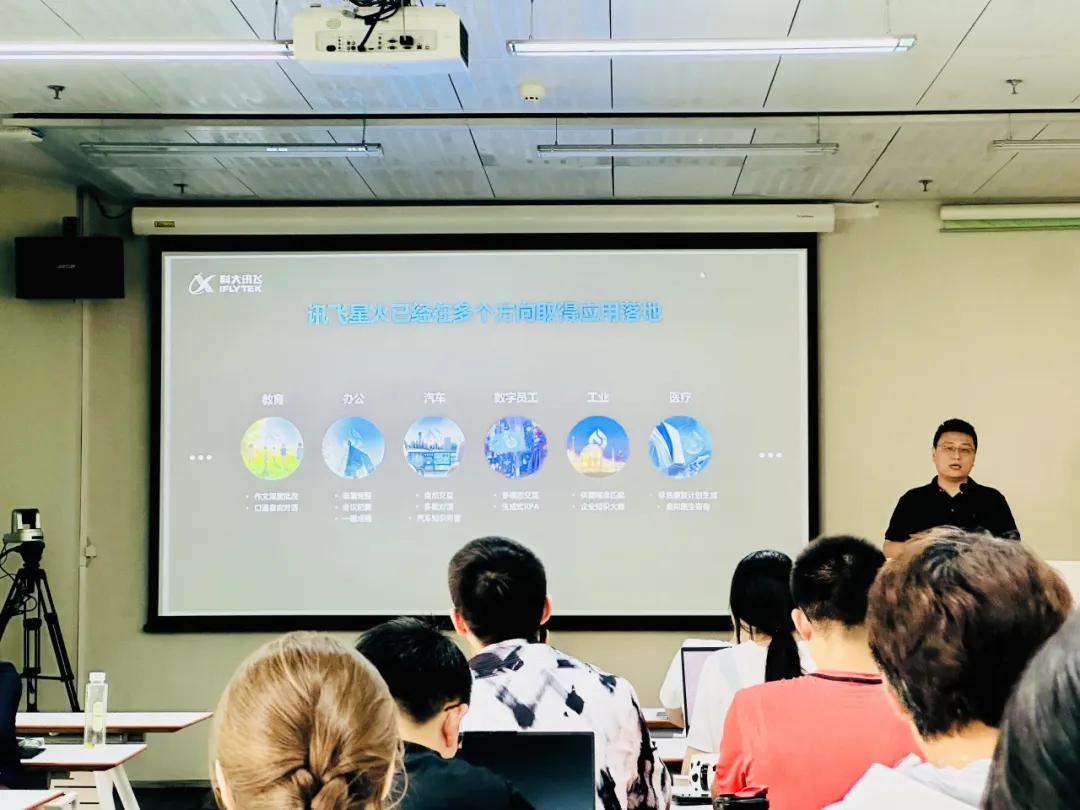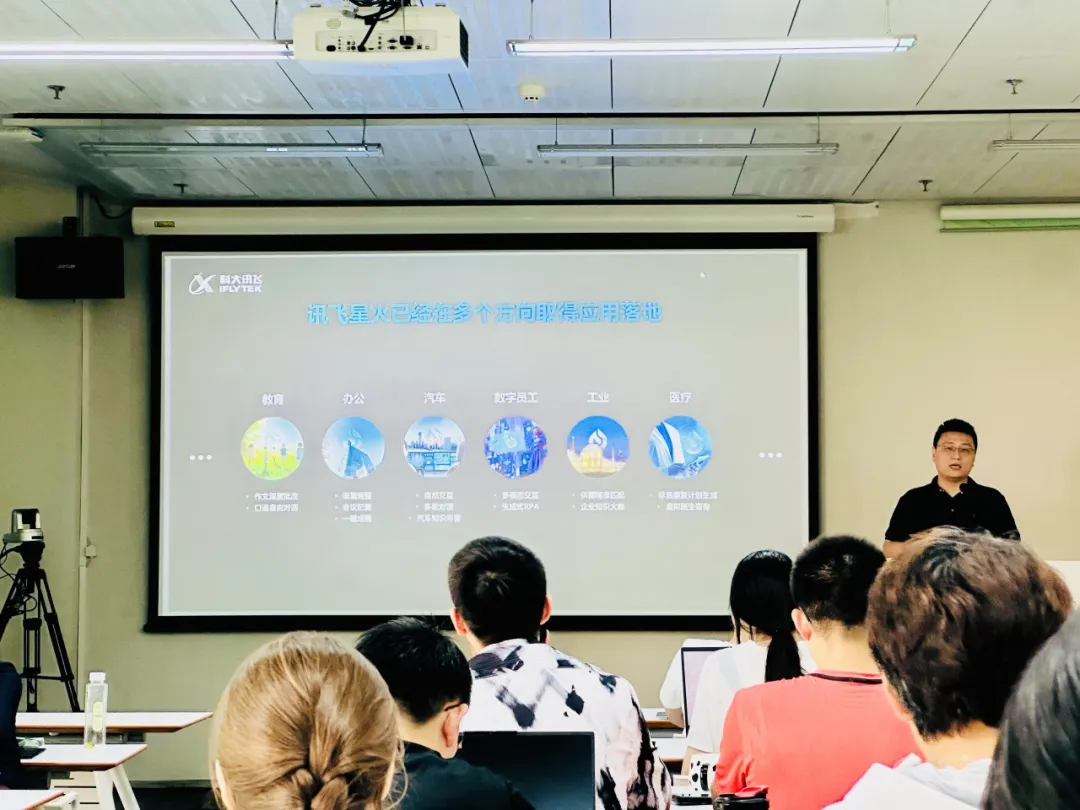On the afternoon of June 12th, the sixth “AI for Ecology and Environment” Academic Week was successfully held in Room 119 of the School of Environment (SOE), Tsinghua University as part of the “Four Decades of Environmental Science: Shaping the Future Together" series of academic activities. The event was hosted by Associate Researcher Li Nan, Associate Director of the Center of AI for Ecology and Environment at SOE. Dr. Tan Chang, Vice President of the Smart City Business Group and Director of the Big Data Research Institute at iFlytek, was invited to deliver an insightful presentation entitled "Recent Advances and Future Applications of Cognitive Large Models."

Presentation by Tan Chang
Dr. Tan Chang's presentation was rich in content and provided an accessible review of the development of AI, with a particular focus on the latest advancements in cognitive intelligence. In his speech, he explained the fundamental principles of large models in detail, shared successful application cases, and demonstrated the practical capabilities of the iFlytek Spark large model through live presentations. He emphasized that cognitive models are having a profound impact on work, production and daily life with their revolutionary technology.
Tan Chang first explained the three stages of AI development: computational intelligence, perceptual intelligence and cognitive intelligence. In the cognitive intelligence stage, machines will not only listen, speak, see and recognize, but also understand and think demonstrating more advanced functions. He also highlighted the underlying technologies of cognitive models, with ChatGPT as an example. Through extensive pre-training on text and code (mechanical memorization) and supervised training on tens of thousands of unified paradigm generation tasks (question banks), cognitive models have achieved "human-like" language understanding, knowledge memorization, and logical reasoning. They further improve their answers to meet expectations by learning from human feedback (exemplary teaching). He said that the emergence of cognitive models has brought about new opportunities to address essential human needs, greatly changing the patterns of information distribution and acquisition.

Tan Chang introduces the latest advancements in iFlytek's Spark large model
Tan Chang specifically highlighted the latest advancements of iFlytek's Spark cognitive model, showcasing its leading technologies in areas such as speech recognition, speech synthesis, machine translation and reading comprehension. Additionally, he illustrated how cognitive models are poised to revolutionize applications across multiple industries, including education, healthcare and finance.
Tan Chang also looked at the future of AI, pointing out that cognitive models will further integrate into work and daily life, serving as accelerators for research and intelligent assistants in production and daily activities. He noted that during China's "Battle of Models," the sparks of general AI will inevitably flourish across the country.
During the discussion session, Li Nan remarked that Tan Chang's presentation had uncovered the vast prospects and tremendous potential of cognitive models for everyone. He encouraged faculty and students to delve deeper into studying and researching AI, seize the opportunities of the times, and contribute to the development of AI in ecological environment. SOE will continue to organize more high-quality academic activities, building bridges for industry-academia collaboration, and facilitating innovative applications of AI in the field of ecological environment.





